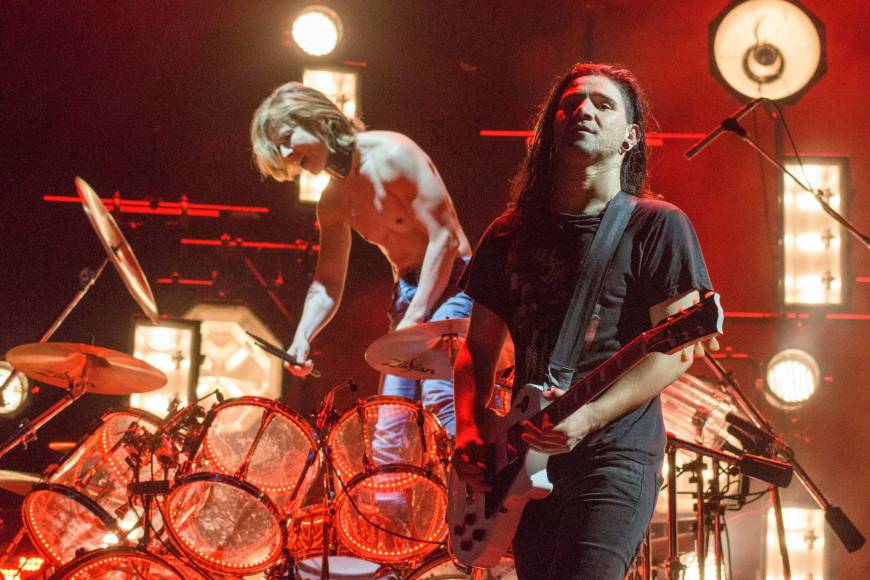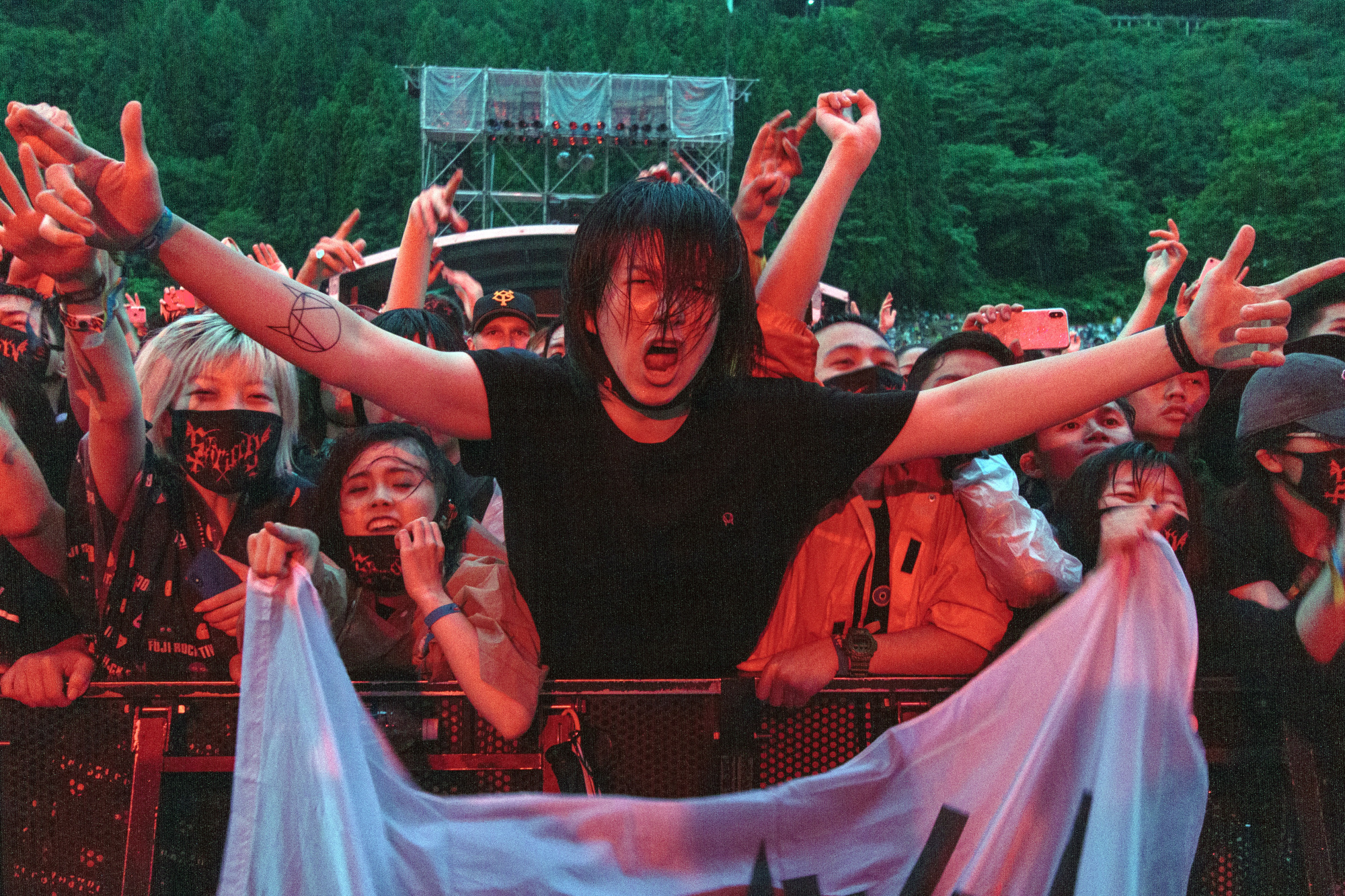Nothing encapsulated the strangeness of this year's Fuji Rock Festival than the spectacle that unfurled on the main Green Stage on Saturday night. After delivering what was already one of the silliest sets of the weekend, EDM producer Skrillex returned for his encore, accompanied by a surprise guest whose identity was already well known to anyone with an Instagram account.
It was Yoshiki, the flamboyant leader of heavy rock icons X Japan, who'd flown in from Los Angeles for the occasion. Sat at his trademark crystal grand piano, he led the crowd through a karaoke version of his group's signature power ballad, "Endless Rain," while his younger accomplice noodled along on electric guitar. A rendition of Skrillex's "Cinema" followed, then the two men hugged, posed for photos and paced around the stage together, seemingly uncertain when — or even how — to leave.


















With your current subscription plan you can comment on stories. However, before writing your first comment, please create a display name in the Profile section of your subscriber account page.